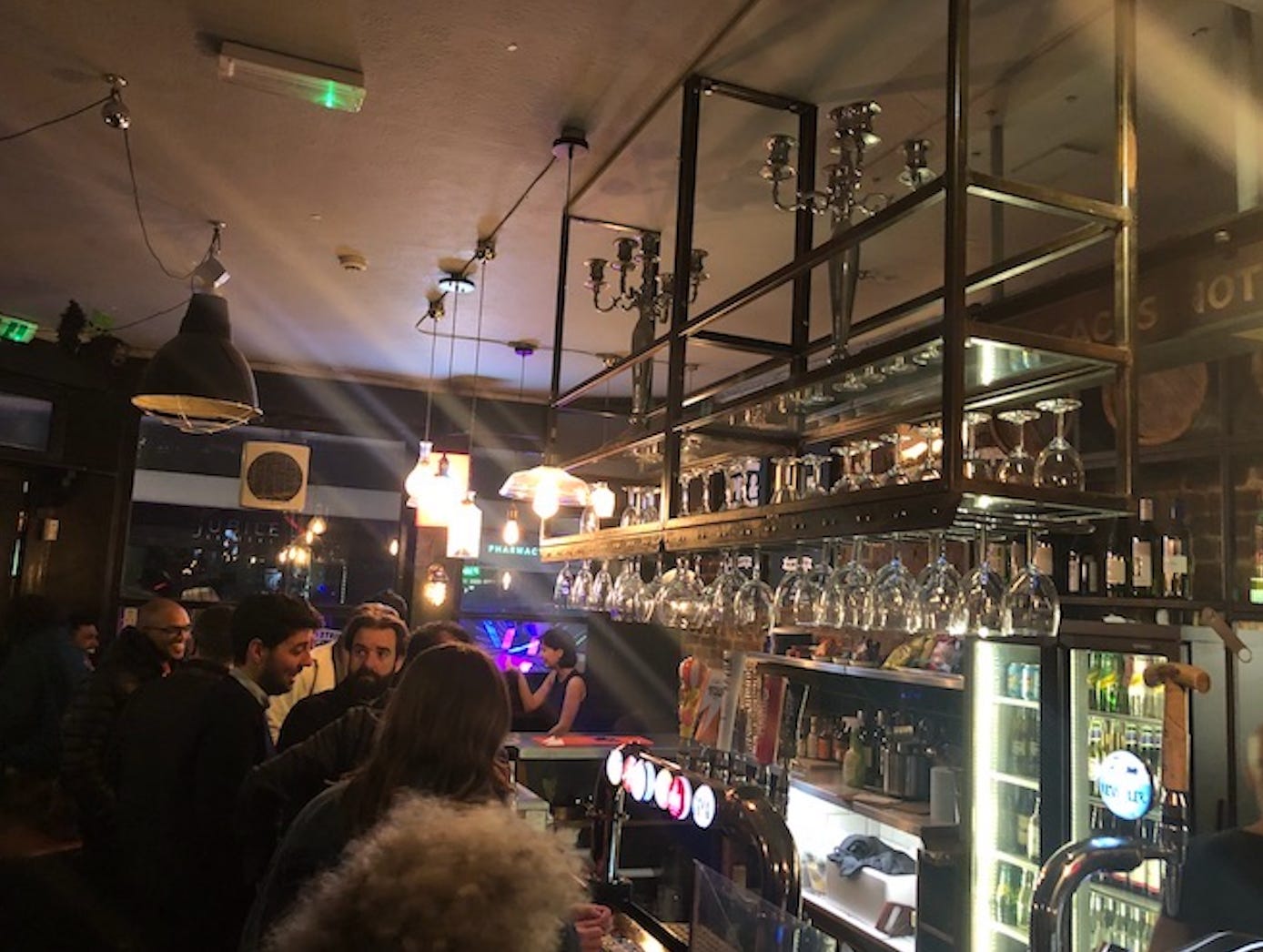West End problems stem from new consumer appetites and crime
Last week's government announcement that the Mayor might get more powers over borough licensing was a bit beside the point
All paid subscribers to this personal Substack help to fund OnLondon.co.uk, the unique, multi-contributor, no paywall, no advertising, high quality London journalism website I run and where this article originally appeared. If you don’t already support OnLondon through this Substack or another channel, please consider becoming a paid subscriber. It costs £5 a month or £50 a year and you get good stuff other people don’t. Thank you kindly, Dave.
It was a lovely photograph, the Mayor, Chancellor and Deputy Prime Minister at Ronnie Scott’s making a harmonised “last orders” call on “red tape” the government proclaims is “choking” restaurants, pubs and clubs such as Ronnie’s, a Soho institution since 1959. Scott himself, a saxophonist and compere, would urge audiences to “join hands and contact the living“. A sceptic might invite last week’s politician line-up to get in tune with West End reality.
Top of the bill was a pledge to arm Sir Sadiq Khan with “new powers to review blocked licensing applications and boost the capital’s night time economy”. What blocking, though? What powers, and when? In Westminster, well over 2,000 licensed premises can stay open until midnight or later, including nearly 300 – including Ronnie’s – until at least 3am (figures below from Westminster Council document).
Theatreland, by the way, is roaring. And while a “landmark pilot” which “could” lead to more al fresco dining and later opening hours is promised, the small print is vague, mentioning only the possibility – nothing more – of a new “call in” power for City Hall over borough licensing decisions defined as having “strategic” significance.
The initiative speaks to media preoccupations and industry beefs about the capital’s central pleasure zones, but has a tin ear for other concerns. The recent case of the proposed Blue Note Jazz Club in Covent Garden illuminates these. The plan was to launch a 350-seat venue in a St Martin’s Lane hotel basement with a drinks licence until 1am. This was refused because the Met expressed concerns about the safety of people leaving the club in the small hours, maybe female, maybe tourists, maybe drunk and maybe, as a result, easy targets for thieves and worse.
The applicant, dismayed, hopes to win an appeal. But whatever the rights and wrongs of that particular example, it highlights wider worries about street criminality across the whole of the West End, long profitable territory for such activity but lately a lot worse. The cops, you might contend, should be doing their job, not penalising jazzers because they can’t. Perhaps, though, they’re just facing reality, with phone-snatching on the rise and officer numbers set to fall. And what would a collapse in confidence in public safety do for trade?
There are other trends in motion in this landscape, among them the decline in alcohol intake among the young. Hospitality bosses know their customers, but what if customer tastes are set for long-term changes to which the sector needs to respond?
The question doesn’t just apply to hospitality. Looking at the West End more broadly, adjustments to changing consumer demands are already underway. Speaking at City Hall last week, Dee Corsi, chief executive of the New West End Company business improvement district, underlined that Oxford Street footfall has been “in decline for a number of years” and is currently half of what it was in 2008, with competition from such as Westfield, west and east, contributing.
She, along with fellow guests, told London Assembly members that a gradual post-Covid recovery is partly down to retailer and Westminster Council responses to “changing customer demands”, with people spending less and wanting something different and more varied from a trip to the West End than they once did. Corsi emphasised that good quality public realm is key to people sticking around for longer and coming back. “Our customers want experiences, they want to be wowed, surprised and delighted,” she said.
The Labour council, not invited to the Ronnie’s gig, just as it was sidelined by last September’s Khan-Rayner announcement that the Mayor wished to take control of Oxford Street, has worked hard since its election in May 2022 to find a post-pandemic way forward with all interested West End parties, including residents, to whom they have democratic responsibilities and not all of whom are stinking rich.
Not their exact words, but senior councillors take the view that one Soho restaurant’s al fresco delight can be one Soho resident’s doorstep puddle of piss. Its recently-published After Dark Strategy reflects a wish to respect and, where possible, reconcile conflicting needs, maintaining, too, that greater night time growth will not happen if crime and antisocial behaviour soar (not for nothing is it doubling its number of CCTV cameras to 200).
It urges a diversification of nocturnal attractions, just as it has sought to help West End retailers with enriching their mix, as shoppers have migrated online and floorspace has gone over to offices. It recognises, too, that pedestrianisation, Khan’s key Oxford Street goal, brings its own public safety challenges.
Such is the shifting context in which the council, the Mayor, national government and a range of sometimes competing business interests often seem to be jostling and jockeying rather more than they are productively negotiating a new West End planning and regulatory settlement for changing, uneasy and uncertain times. The optimal may be contested and elusive. Clearly, though, it is about more than banning traffic and enabling more boozing through ’til dawn.





